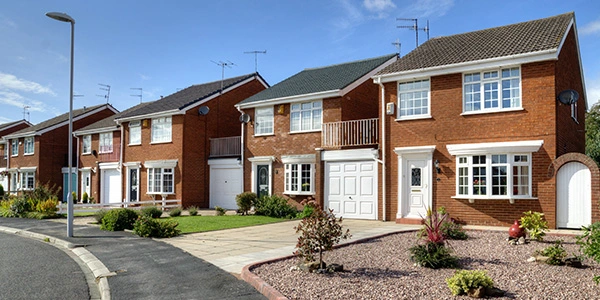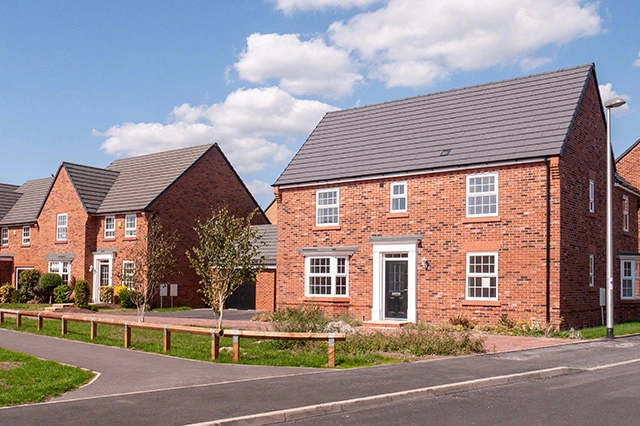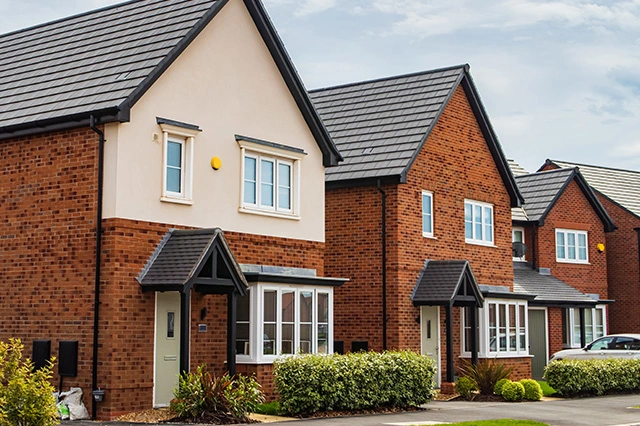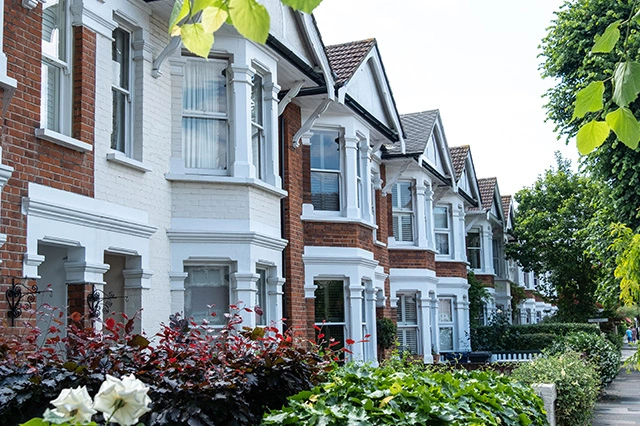What is Landlord Insurance?
Landlord insurance is a type of insurance policy designed specifically for landlords who rent out their properties in the UK. This type of insurance can provide valuable protection for landlords against risks and damages that may occur in their rental properties.
For landlords who rent out properties specifically for investment purposes, buy to let insurance is a specialised form of landlord insurance that provides tailored coverage for these scenarios.
Policies typically include two main types of cover: buildings insurance and contents insurance. Landlord buildings insurance provides cover for the structure of the property, including fixtures and fittings, against damage caused by events such as fire, flood, storm, and subsidence. Landlord contents insurance on the other hand, covers the landlord’s belongings, such as furniture and appliances, that are used by tenants.
In addition to buildings and contents insurance, landlord insurance policies may also provide other types of cover, such as liability insurance, which can protect landlords against legal claims made by tenants or third parties who are injured on the property. Rent guarantee insurance is another type of cover that may be included, which provides compensation to landlords if tenants are unable to pay rent.
It’s important for landlords to carefully review and compare different landlord insurance policies to ensure they are getting the right coverage for their needs. Policies can vary significantly in terms of the level of coverage they offer, the premiums charged, and the exclusions and conditions that apply.
How our process works
We’ve worked hard to refine our process and keep it as quick, easy and simple as possible for our customers.
Who Needs Landlord Insurance?
If you own a property and rent it out, whether it’s a single property or multiple properties, it’s important to consider getting landlord insurance. This includes buy-to-let landlords, professional landlords and accidental landlords who may have inherited or have to rent out a property due to circumstances.
It’s important to note that standard home insurance policies typically do not cover rental properties. Landlord insurance provides more comprehensive cover that is tailored to the specific needs of landlords.
Additionally, if you have a mortgage on your rental property, your lender may require you to have a landlord policy as a condition of the mortgage agreement.
Why Do I Need Landlord Insurance?
As a landlord, protecting your rental property and financial interests is paramount. Landlord insurance provides peace of mind and financial protection against unexpected events such as property damage, liability for accidents, and loss of rental income. Without landlord insurance, you could face significant financial losses that might impact your ability to maintain your property and meet mortgage payments.
Whether it’s a natural disaster, a tenant’s accidental damage, or a legal claim, having the right insurance cover ensures you’re not left out of pocket. In essence, you need landlord insurance to safeguard your investment and ensure a steady rental income stream.
What Properties Can Be Insured with Landlord Insurance?
Landlord insurance can cover a wide range of properties, ensuring you have the necessary protection regardless of the type of rental property you own. This includes:
- Houses
- Blocks of Flats
- Apartments
- Commercial properties
- Houses in Multiple Occupation (HMOs)
- Self-contained flats
Whether you own a single-family home, a block of flats, or a commercial property, specialist landlord insurance can provide the financial protection and peace of mind you need. It’s essential to choose an insurance provider that understands the unique risks and requirements associated with renting out properties, ensuring you get the best possible cover for your investment.
Property Liability Cover for Landlords
Property owners liability insurance is a type of cover that can be included in a landlord insurance policy. It provides protection for landlords against legal claims made by tenants or third parties who are injured on the rental property.
This cover is designed to provide financial protection in the event that a tenant or visitor is injured on the property and holds the landlord responsible for the injury. It can also provide cover for damage caused by the landlord’s negligence, such as a fire or flood that is caused by faulty wiring or plumbing. Property owners liability insurance typically covers legal fees and expenses associated with defending against a claim or settling a claim that is made against the landlord. It can also cover compensation that is awarded to the claimant, up to the limit of the policy.
It’s important for landlords to carefully review the terms and conditions of their landlord insurance policy, including any exclusions or limitations related to property owners liability insurance. Landlords should also consider the potential financial impact of a claim and the cost of the insurance premium when deciding whether to include this coverage in their policy.
What Does Landlord Insurance Cover?
Landlord insurance is designed to provide coverage for risks that are specific to rental properties. The coverage can vary depending on the specific policy and the insurance provider, but typically includes the following two key areas.
Landlord Buildings Insurance
Landlord buildings insurance is essential for protecting the structure of your rental property. This type of insurance covers damage to the walls, roof, foundations, and other permanent fixtures. Events such as natural disasters, fires, and storms can cause significant damage, leading to costly repairs or even a complete rebuild. With buildings insurance, you can rest assured that these expenses will be covered, allowing you to focus on managing your rental property without the stress of unexpected repair costs.
Landlord Contents Insurance
For landlords who rent out furnished properties, landlord contents insurance is crucial. This insurance covers damage to items you own within the rental property, such as furniture, appliances, and other personal belongings.
Whether it’s accidental damage like spills or smashes, or more severe incidents like theft or vandalism, contents insurance provides financial protection. By ensuring your belongings are covered, you can avoid the financial burden of replacing or repairing items, keeping your rental property in top condition for your tenants.
Additional Cover Options
On top of both buildings and contents, you can add a number of additional levels of coverage.
What Is Loss Of Rental Insurance?
Loss of rental insurance, also known as rent guarantee insurance, is a type of landlord insurance cover loss that provides protection for landlords against the loss of rental income if tenants are unable to pay their rent for reasons such as job loss or financial hardship.
This policy addon typically pays out a monthly rental income to the landlord for a specified period, which is usually up to 12 months. Some policies may also cover the legal fees associated with evicting tenants or recovering rent owed.
Having loss of rental income cover is particularly valuable to landlords who require that rental income to pay the mortgage on the property. Both residential and commercial landlords who financially require their rent payments on time should consider this as an addon to their quote.
How Much Does Landlord Insurance Cost?
The cost of landlord insurance will vary depending on a number of factors, including the size of the property, its location, the level of coverage required and even the type of tenants.
Depending on the level of coverage and the specific needs of the landlord some policies may be more expensive, especially if they include additional coverage such as loss of rental income or legal expenses.
Landlords can compare quotes provided by an experienced insurance broker to get a better idea of how much their specific policy will cost. It’s important for landlords to carefully review the terms and conditions of their policy, including any exclusions or limitations, to make sure they have the right level of coverage for their needs.
It’s also important to note that the cost of landlord insurance should be factored into the overall costs of owning a rental property. While it may be an additional expense, it can provide valuable protection and peace of mind in the event that unexpected events occur.
How Can I Save On Landlord Insurance?
Acting as a landlord, whether you have a single property or portfolio of properties can generate a valuable income, but it can also be expensive.
Frequently Asked Questions
Related News
The Current UK Housing Market & What Could Be Expected Into 2025
The UK housing market is experiencing a period of cautious growth, with house prices showing a modest increase in certain areas, though challenges remain for potential buyers. Here's an overview of the current state
Best Investment Areas When Building A Property Portfolio In The UK
Investing in property requires careful consideration of various factors, including market trends, economic growth, infrastructure development, and rental demand. Here are some of the best areas to invest in the UK property market as
How to Build a Property Portfolio in the UK
Building a property portfolio in the UK is an attractive investment strategy for many, offering potential for both capital growth and steady income. However, it requires careful planning, understanding of the market, and effective





